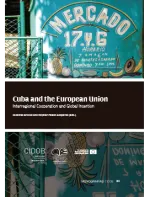Cuba and the European Union. Interregional Cooperation and Global Insertion

Monografia CIDOB nº 83
The relationship between Cuba and the EU still is conditioned by asymmetries, the different nature of political and economic systems, the costly strategic calculation imposed by the US policy against Cuba, as well as by the constraints resulting from the global crisis, now aggravated by the COVID pandemic and international conflicts. The sui generis model of regional and international insertion of Cuba as a socialist country and the one of the European Union itself as a process of integration under construction, represent another particularity of a relationship that has developed gradually, from its formalization in 1988 to the signing of a Political Dialogue and Cooperation Agreement in 2016. The latter made possible to broaden and deepen cooperation together with the political, social and economic relations between the two parties. To date, the island has implemented several reforms with the aim of enhancing its international integration, within a framework of effectiveness and in keeping with its national interests. With this work, European and Cuban academics, members of the Europe Cuba Forum Jean Monnet Network, provide an interesting analysis of the factors that hinder or enhance Cuba’s insertion into the current international political scene and the EU’s constructive support to this process, which is taking place within the framework of renewed bilateral, interregional and global cooperation.
ISBN: 978-84-18977-01-5
Keywords: Cuba, European Union, COVID, USA, interregional cooperation
